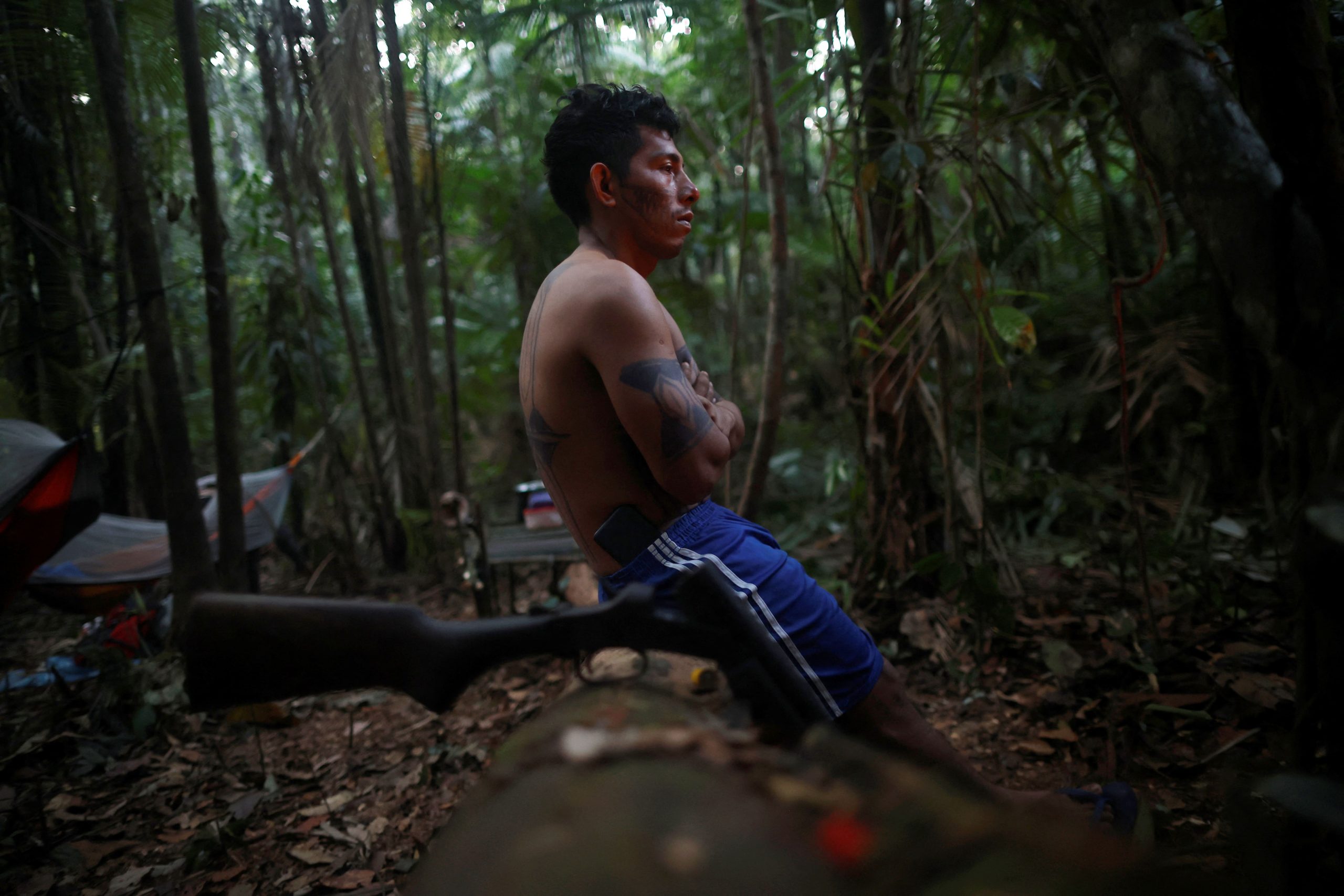A coalition of developed countries and corporations has agreed to a massive purchase of carbon credits from the Amazon rainforest worth $180 million, which has been described as the largest in history.
The LEAF coalition, an initiative launched in 2021 seeking to mobilise finance for forest protection, announced the agreement this week with the Brazilian state of Pará.
The state, which will host the COP30 climate summit next year in the city of Belém, last year recorded the highest Amazonian deforestation rate in the country. Around 170,000 sq. km, an area the size of Uruguay, was destroyed.
Sign up to get our weekly newsletter straight to your inbox, plus breaking news, investigations and extra bulletins from key events
Announcing the carbon credit initiative in New York, Pará State Governor Helder Barbalho told international press that the deal – which allocates a portion of the funds to indigenous and local communities – is “extraordinary”.
“It will be the largest carbon credit sale in history,” Barbalho said in a statement. “We dream of making living forests valuable, turning what dead forests need into a reality where the forest gains value.”
Funds for rainforests
Around 30 multinational corporations including Amazon, Bayer, BCG and H&M Group will purchase the credits from the project at $15 per tonne. The governments of the UK, US, Norway and South Korea will also back the deal with purchase guarantees, promising to buy a chunk of the credits at $15 per tonne if no private-sector buyer is found for them.
LEAF expects to generate around 12 million forest credits by reducing deforestation in Pará from 2023 to 2026. The coalition has already established smaller projects in Costa Rica and Ghana, which sold credits at a lower price of $10 per tonne.
“The LEAF approach represents the best, and perhaps last, chance to halt and reverse tropical deforestation by 2030, channelling billions in climate finance to the Global South,” said Eron Bloomgarden, CEO of Emergent, coordinator of the LEAF coalition.
The Canadian city betting on recycling rare earths for the energy transition
Ahead of climate finance talks at COP29 in Baku, developed countries have continued to highlight the role of private investment using approaches like that of the LEAF coalition as a way to move funds from Global North to South.
Bilateral purchases of carbon credits have also become more common, but the rules governing these agreements have yet to be finalised at the UN climate talks, with another push due at COP29 – leading to controversial deals.
Close monitoring
If successful, the LEAF Pará initiative could become a “role model” for forest protection in the Amazon, but this will require evidence that it is changing the state’s emissions trajectory, said Mariana Oliveira, manager of the Forests, Land Use and Agriculture Program at WRI Brasil.
“Given the nature and structure of the transaction, it will be necessary to closely watch the interventions to be sure that there is a link between the revenue from carbon credits and the interventions,” Oliveira told Climate Home News.
Since 2020, Pará state – the second-largest in the Brazilian Amazon – has committed to an emissions reduction strategy aiming to restore around 5 million hectares of forests and achieving net-zero forest emissions by 2036. The state has also put in place a mandatory tracking system for all cattle and buffalo supply chains. After a slight rise in 2021, Pará’s deforestation fell in 2022 and 2023.
Senegalese banker Ibrahima Cheikh Diong picked to lead new loss and damage fund
While the state is already making efforts to combat deforestation, Oliveira said the information available on the LEAF deal suggests these efforts will be additional and with a separate source of funding – which are critical elements of high-integrity carbon credits.
“From now on, it is important for civil society to closely monitor how this program will develop, demanding real and effective participation from traditional peoples,” she added.
(Reporting by Sebastián Rodriquez; editing by Joe Lo and Megan Rowling)
